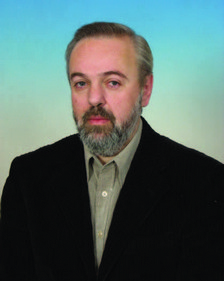
Jugoslav Bošnjak (1954, Serbia) received his BA and MA degrees in composition in the class of Prof. Rajko Maksimović. He lives in Belgrade and works as a composer and music producer for the Symphony Orchestra of Serbian Broadcasting Corporation Network. During the 30 years of work, his most noted compositions are the following: Symphony Poem Alef; Poem for Violin and Orchestra Chimera; Book of Tibet, Fantasy for Symphony Orchestra; Overture 1453; Ballet King’s Autumn (BEMUS 1993); Revelation of St. John for solo trumpet and mixed choir; St. Mark’s Passion, Oratorio (World Music Days 1996); Three Songs for trombone and orchestra; Concerto for Piano and String Orchestra (BEMUS 1999); Symphony Passacaglia; Oratorio Book of Job; Musical Music Odyssey, etc. Among his soloist and chamber music pieces some of the most significant are: Trio Variations for clarinet, violin and piano; Memory for harpsichord; Faith for soprano and string quartet; Aquarelle for two pianos, timpani, and vibraphone; Memory Mask for string quartet (Composers Review 1997); Five Minutes for Ljubisa for flute and piano; Lethe for violin, clarinet, and piano, and many others.
Lethe (The River of Oblivion). In ancient Greek mythology Lethe is a river in the underground world. The souls of the departed would drink its water to forget about the past. Souls that could be reincarnated drank the water from this river, and only then would they forget the sufferings from their past lives. The composition for clarinet, violin and piano of the same name is inspired by this mythological story, so this trio contains sections related to memories interchanging with more peaceful sections related to oblivion. The trio Pokret (Madlen Stokić Vasiljević, violin, Miloš Nikolić, clarinet, and Maja Mihić, piano) initiated the creation of this composition. Last year, they also performed Trio Variations by this composer.


